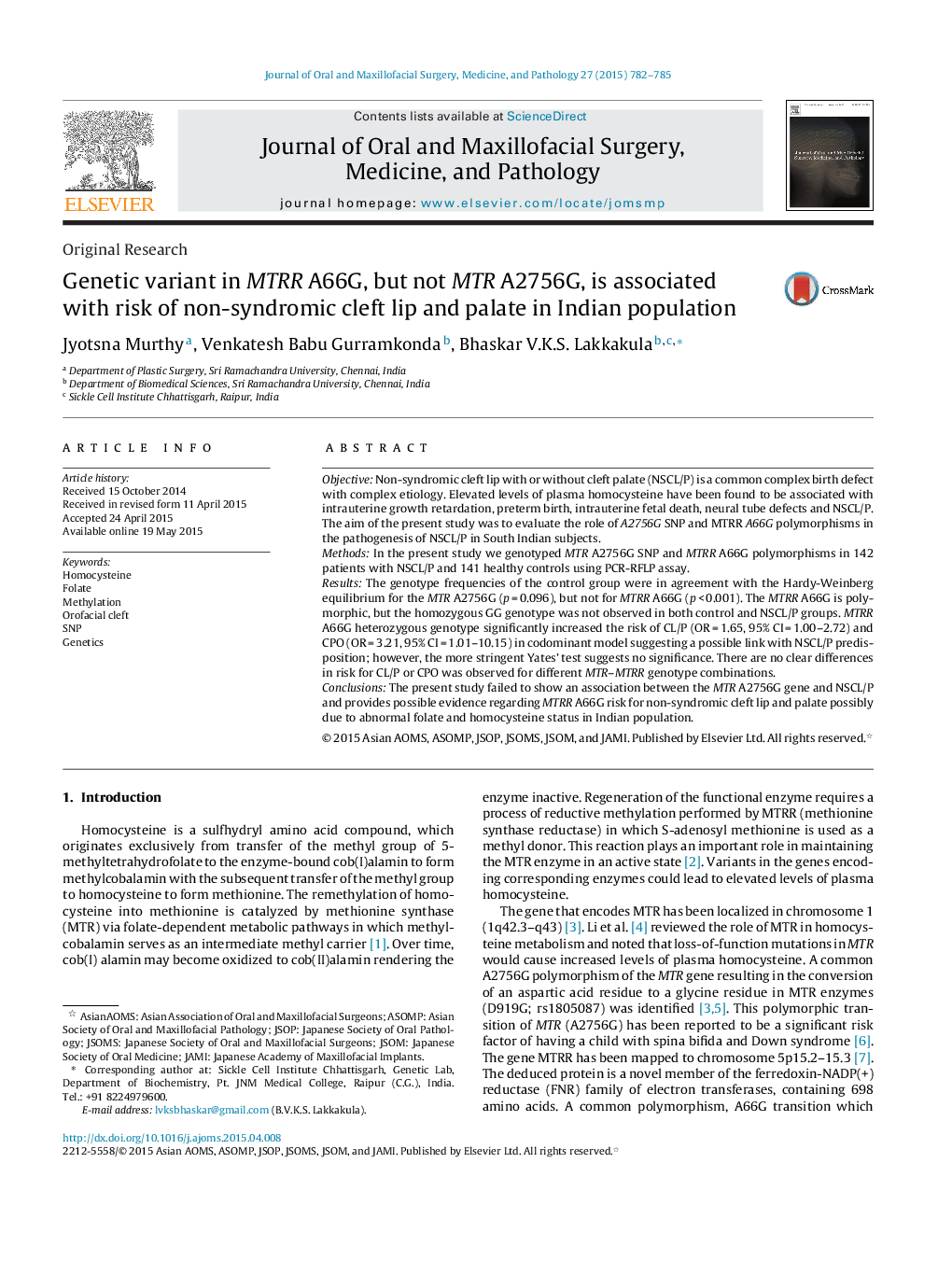| Article ID | Journal | Published Year | Pages | File Type |
|---|---|---|---|---|
| 3160381 | Journal of Oral and Maxillofacial Surgery, Medicine, and Pathology | 2015 | 4 Pages |
ObjectiveNon-syndromic cleft lip with or without cleft palate (NSCL/P) is a common complex birth defect with complex etiology. Elevated levels of plasma homocysteine have been found to be associated with intrauterine growth retardation, preterm birth, intrauterine fetal death, neural tube defects and NSCL/P. The aim of the present study was to evaluate the role of A2756G SNP and MTRR A66G polymorphisms in the pathogenesis of NSCL/P in South Indian subjects.MethodsIn the present study we genotyped MTR A2756G SNP and MTRR A66G polymorphisms in 142 patients with NSCL/P and 141 healthy controls using PCR-RFLP assay.ResultsThe genotype frequencies of the control group were in agreement with the Hardy-Weinberg equilibrium for the MTR A2756G (p = 0.096), but not for MTRR A66G (p < 0.001). The MTRR A66G is polymorphic, but the homozygous GG genotype was not observed in both control and NSCL/P groups. MTRR A66G heterozygous genotype significantly increased the risk of CL/P (OR = 1.65, 95% CI = 1.00–2.72) and CPO (OR = 3.21, 95% CI = 1.01–10.15) in codominant model suggesting a possible link with NSCL/P predisposition; however, the more stringent Yates’ test suggests no significance. There are no clear differences in risk for CL/P or CPO was observed for different MTR–MTRR genotype combinations.ConclusionsThe present study failed to show an association between the MTR A2756G gene and NSCL/P and provides possible evidence regarding MTRR A66G risk for non-syndromic cleft lip and palate possibly due to abnormal folate and homocysteine status in Indian population.
